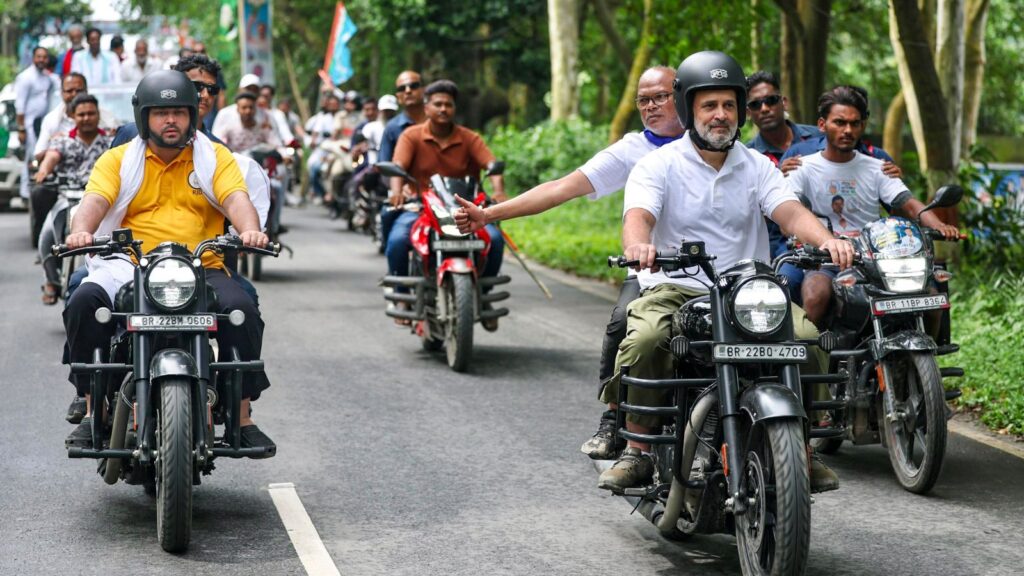New DelhiOctober 15, 2025 04:59 PM IST
First published on: Oct 15, 2025 at 04:39 PM IST
Hostels in each sub-division and degree colleges in every block for students of Other Backward Classes, implementing recommendations of the Bandyopadhyay Commission on land reforms, and giving first access to rape survivors of their medical reports to avoid “manipulation” — these are some of the promises that the Mahagathbandhan is likely to include in its joint manifesto for the Bihar Assembly polls.
Sources working on the manifesto, which is likely to be released in the next few days, told The Indian Express that the alliance had discussed some broader issues for inclusion in the document. “A final call will be taken by the Mahagathbandhan’s coordination committee,” a source said.
The coordination committee is headed by former Bihar deputy chief minister and RJD leader Tejashwi Yadav, with members from all Mahagathbandhan parties, including Congress state president Rajesh Ram, AICC Bihar in-charge Krishna Allavaru, and CPI (M-L) L general secretary Dipankar Bhattacharya, among others.
“The idea to include the Bandyopadhyay Commission’s recommendations was made by the Left parties. But there was some resistance from the Congress, which did not want to be seen as antagonising land-holding communities,” another source said, adding that the RJD is yet to decide on the issue.
The D Bandyopadhyay Commission (also known as the Bihar Land Reforms Commission) was a three-member panel constituted by the Bihar government in June 2006 to recommend land reforms in the state.
The commission was chaired by Debabrata Bandyopadhyay, a retired IAS officer of the West Bengal cadre known for his expertise in radical land reforms.
Soon after becoming the CM for the first time in 2005, Nitish Kumar had constituted the commission which, in its report to the state government in 2008, suggested a new Act to protect sharecroppers (tenants who cultivate land and share the produce with the owner), besides a legislation to cap land ceiling and computerisation of land records.
In November 2009, amid the debate on the panel’s recommendations, the state government clarified that it was not bound to accept them. Nitish then said “my government was not bound to abide by the recommendations of the commission”.
Terming the promises of setting up degree colleges and hostels for OBCs and other marginalised communities as “fairly straightforward”, a senior Congress leader part of the discussions said, “These issues will most likely feature in the manifesto as there was general consensus on them.”
The treatment of rape survivors and their medical examination may also be a part of the manifesto. “Medical examination of rape survivors sees manipulation by powerful people under the current dispensation. We will include a promise to make available the medical report to the survivor within 24 hours. The report will not be considered a document of the local administration and the police, but will first belong to the survivor. This will ensure a fair trial in courts and speedy justice,” the Congress leader said.
Party leaders pointed out that Tejashwi and Leader of the Opposition in the Lok Sabha Rahul Gandhi had already released a resolution — the Atipichchda Nyay Sankalp — focused on the Extremely Backward Classes (EBCs), which contained promises such as a dedicated law to prevent atrocities against members of the EBCs on the lines of the SC/ST (Prevention of Atrocities) Act, increasing EBC reservation in panchayats from 20% to 30%, and doing away with the “not suitable for” clause in recruitment in state government jobs.
EBCs, who make up around 36% of Bihar’s population and form the state’s largest electoral constituency, are seen as leaning towards the NDA.


